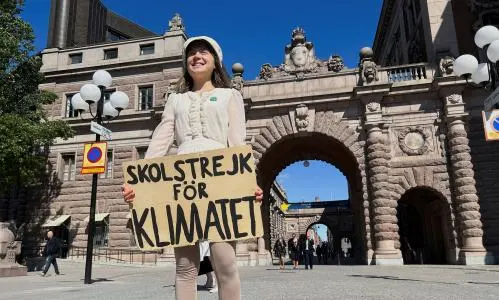Public transport workers across Germany are reported to have joined forces with climate activists for a week of strike action culminating in a collective nationwide walkout and climate protest on Friday.
According to reports, one of Europe’s largest trade unions, Verdi, which represents the majority of public transport workers in Germany, is collaborating with the youth-led Fridays for Future in what the organisations themselves admit is an unusual partnership, but one born out of recognition of their overlapping goals.
More action on the climate crisis requires greater investment in public transport, they argue.
Previously, transport workers and Fridays for Future have often been in opposition to each other.
The new alliance, under the slogan #WirFahrenZusammen (We’re driving together), will hope to galvanise public support for their goals. A recent train drivers’ strike that went on for several days, costing the economy an estimated €1bn (£860m), garnered considerable backing from the public.
The protests, covering all German states except Bavaria, will involve 90,000 workers from 130 municipal transport organisations and will demand better working conditions, higher pay and investments of about €100bn by 2030, to double current capacity, with organisers calling for a “social justice transport transformation”. They will focus on the need for more political will to prioritise sustainable transport and a commitment to provide the necessary funding for this.
Read also:Denmark drops investigation into Nord Stream pipeline blasts
Andreas Schackert of Verdi, who represents bus and train workers, said that some local transport services were on the verge of collapse due to a lack of workers and this would have a knock-on effect on Germany’s ability to reduce its carbon emissions.
“Public transport is an important lever when it comes to tackling climate change,” he said.
According to the association of German transport companies, 110,000 additional workers are needed in the public transport sector over the next six years to cope with a chronic staff shortage and reported high levels of stress and burnout among existing workers.
In cities including Berlin, services have recently had to be cut back due to a lack of drivers.
Story was adapted from the Guardian.
